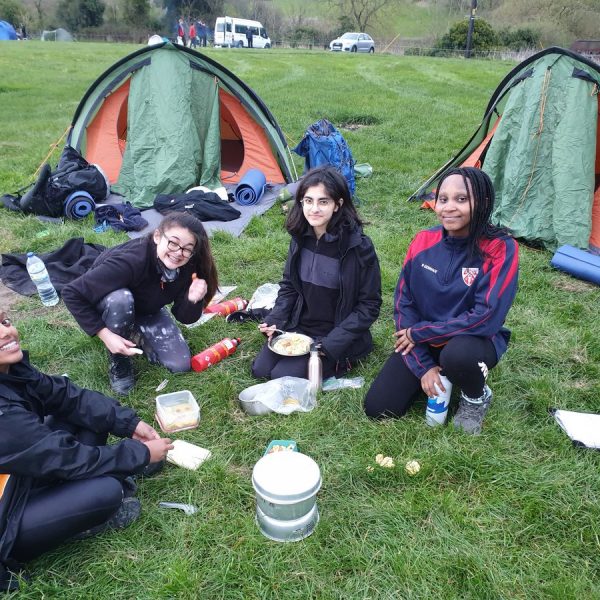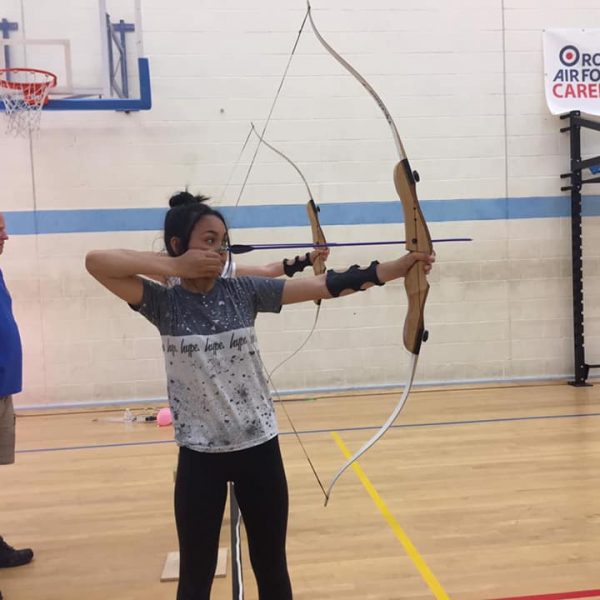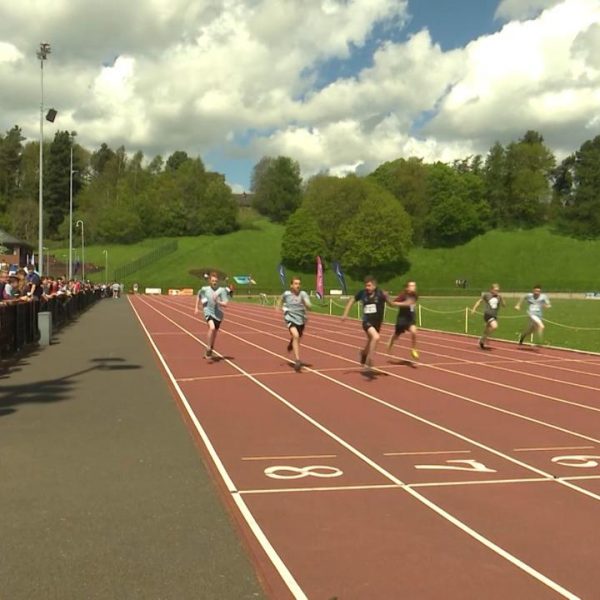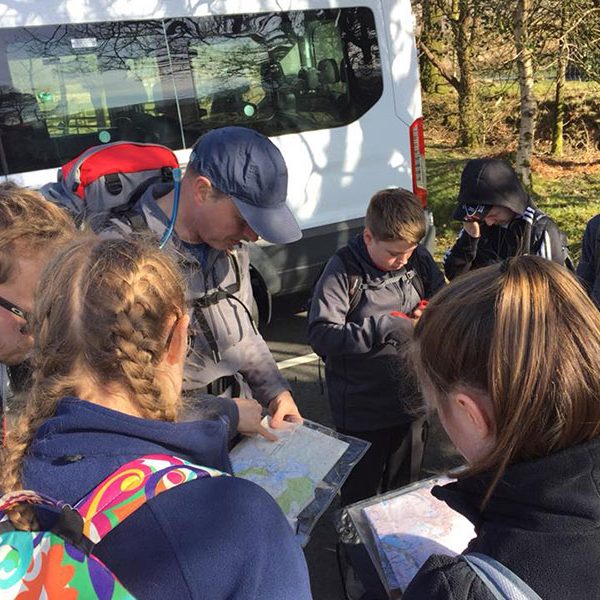Adventure Training
Adventure training and sport have always been an important part of cadet training. Rock climbing, abseiling, high-level hill walking, mountain-biking, canoeing, high rope work and sailing are all par for the course!
Adventurous Training is an essential part of the Air Cadet’s training syllabus and the place where team effort really matters – you’ll build new friendships, and learn to rely on the other people you’re with to get the job done. It also lets you show off your leadership qualities.
Adventure Training
Cadets can take part in a wide range of adventurous activities, both at Squadron and Wing level, and also at our two Adventure Training Centres – at Windermere in the Lake District and Llanbedr in coastal Wales.
A few different activities come under the umbrella of AT, some of these include:
- Rock climbing
- Abseiling
- Kayaking
- Mountaineering
- Orienteering
- Hill walking
- Mountain Biking
- Canoeing
- Low and High ropes
Adventure Training is an essential part of the Air Cadet’s training syllabus and the place where team effort really matters – you’ll build new friendships, and learn to rely on the other people you’re with to get the job done. It also lets you show off your leadership qualities.
Remember, whatever your personal tastes, nothing is compulsory. There is a wide range of adventurous activities to get stuck into, so if climbing isn’t for you perhaps canoeing is. Everything you do is supervised by qualified trainers who will ensure you get the most out of it.














Sports
As an air cadet you can take part in seven main sports at different levels such as:
- Athletics
- Cross country
- Football
- Rugby
- Hockey
- Netball
- Swimming
Whatever you do it’ll help improve your physical fitness levels and your teamwork skills. If you’re good enough at your favourite sport we’ll notice, and can help you take it to the next level.
There are frequent tournaments between squadrons, where the best players are selected to represent the wing. The same then happens for the region, with wings competing against each other and the best players making up the regional team. If you make it through each of those selections then you’re good. Really good. You’ll be at the top of your game and will have a shot at representing the entire cadet corps, nationally and even internationally.
We run loads of different sport activities at the Squadron. Don’t worry if you don’t think sport is your strength. You don’t have to be the next Olympic star, just take the opportunities and enjoy yourself!
DofE Award
The Air Training Corps is the largest operator of the Duke of Edinburgh’s Award Scheme in the country. If you’re 14 or over, then you can begin – just ask the instructors in your squadron and they’ll help you get started.
There are three levels which, when successfully completed, lead to a Bronze, Silver or Gold DofE Award. And it’s never too late to get in on the action – depending on your age you may be able to jump straight in at Silver or Gold level!
There are four sections at Bronze and Silver level and five at Gold:
- Volunteering – Get involved providing services to individuals or the community and make a difference to other people’s lives
- Physical – Get active and improve your skills and fitness in sport, dance or other physical activities – it’s your choice
- Skills – Find new interests and get new talents (or perfect existing ones), with increased practical and social skills
- Expedition – Get outdoors and plan, train for and complete an adventurous journey in the UK or abroad – an unbeatable experience
- Residential – Only at Gold level. Getting to the Gold level is a big deal and this last stage could see you going to another country, sharing tasks and activities with people you’ve never met. It’ll test your mettle, and set you up for what life throws at you in the future
Air Cadets have a head start in the D of E award as many of the activities they pursue as members of their squadrons also qualify them for the different sections of the D of E Awards. The Duke of Edinburgh’s Award provides a framework for cadets to spend time pursuing existing hobbies and interests, whilst also having the opportunity to help other members of the community. On an expedition, cadets get involved with camping, hill walking and map reading.



